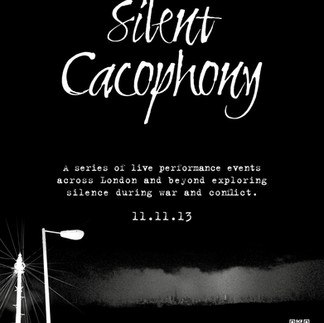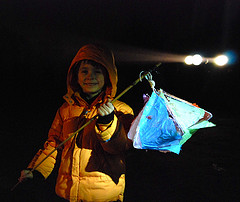INTERVENTIONS
- John McKiernan
- Jan 12, 2023
- 4 min read
This blog post was first posted on Haphazard.Business on 5 May 2020 and has been updated here with clearer text and updated images. The original blog is available here.
__
Methods employed in curating long-term art interventions for more than a decade in public spaces are helping develop a new economic model for these challenging Covid times.

Tapescape Catford (2012) poster
Previous interventions
The founder of Fourth Portal, John McKiernan, established the Platform-7 network in 2009. It formed out of the creative customer base of his previous business Moonbow Jakes coffee bars and theatre.
Starting with one-off large-scale events, he curated the first 3-month intervention in 2011 in Margate, Kent. It followed the impact of the Turner Contemporary art gallery on the nearby deprived area of Cliftonville. Several further interventions followed of various lengths. Interventions included Tapescape in Catford, south-east London, where a 3-month event series in an abandoned Blockbuster video store discussed the impact of technology and built-in obsolescence. The 4-month Waste Agency in a disused HMV record store in the City of London explored how we built an economic model based on consumption and wastefulness.
Moonbow Margate (2011) attracted 3,000 visitors within 3-months
Intervention methodologies
Interventionist methodologies go back centuries in various forms. In recent times such methods were applied in protests and for resistance, generally linked to strands of philosophy. To modern viewers, interventionism may seem a little too abstract to understand. One reason people struggle to comprehend is the tendency of intervention organisers to focus on the process rather than a particular message.
The capitalist business mindset in the modern age requires a strategic aim, objective and final goal, meaning a profitable financial outcome for all activities.
Waste.Agency (2014), City of London, how we built an economy based on consumption and wastefulness
Interventionism borrows heavily from the arts, where the process is often more enjoyable and rewarding than the end product. Yet, interventions do have strategic goals, for example, to influence people to reconsider why they have the opinions they do. Interventions by Platform-7 cover subjects that can appear diverse, such matters as war, environment and migration. Such topics are not separate, they are all linked and the interventions seek to draw attention to those links. Platform-7 interventions do not seek to lead the conversation. they engage on an equal footing. In doing so, the intervention adapts, evolves and transmogrifies as more visitors and artists add their input.
End product
Interventions by Platform-7 have attracted thousands of people. The majority arrive close to the conclusion when the space is alive, buzzing and full of fascinating art, people and discussion. They see the space in its full glory and will be unaware of how it came into being.
For those who wander into the intervention at the outset, it is a different experience. Reactions are much more mixed. Some people will just see an empty room, artists will always see a potential gallery space and others will think it is weird and walk on. And amongst all these early visitors, some see the intervention as an opportunity to pivot their life..
Network Rail, London Bridge Live Station (2017)
Interventionist journey
For those amid personal change, the road can seem lonely. Our Western conditioning tends to focus on practical solutions to these periods of life; a change of job or relationship, going travelling, buying a new car. Too often these answers are only short-lived, with the urge, itch, and unhappiness soon returning and sometimes leading to anxiety and other negative impacts.
The blank canvas that the interventionist approach offers can represent, in physical form, the anxiety that discarding convention causes in the mind; and this becomes attractive to those seeking a break from personal conformity.
“Anxiety levels were highest among an estimated 8.6 million people whose income fell, according to the weekly survey on the impact of coronavirus.”
BBC, Money worries in pandemic drive surge in anxiety, 4 May 2020
Remembrance (2009-2013), Trauma of war and conflict
Post-Covid anxiety
One of the major issues becoming apparent from this pandemic across the Western world is the increasing level of anxiety. Disruption to ‘normality’ through lockdown has forced many to reassess how they have lived up to this point. Whether or not people keep or lose their jobs, some will be considering how they lived before the lockdown is really how they will want to live and spend their time post this period.
Fourth Portal
“Covid-19 will only increase automation anxiety”
FT Headline, Opinion | Artificial Intelligence, 21 April 2020
Fourth Portal will be a commercial-led intervention, and the conclusion to this first part of the Haphazard Business journey, creating an innovation hub. Using the interventionist methodology, touched upon above, these new Fourth Portals will be technology led retail-esque cum gallery spaces, exploring what the world may look like post-Covid-19. The locations will evolve over the summer of 2020, encouraging people to share their thoughts and add their input, creating some unique spaces in Great Yarmouth fit for the coming 4IR.
John M. This blog post was first posted on Haphazard.Business on 5 May 2020 and has been updated with clearer text and new images. The original blog is available here.



































Comentários